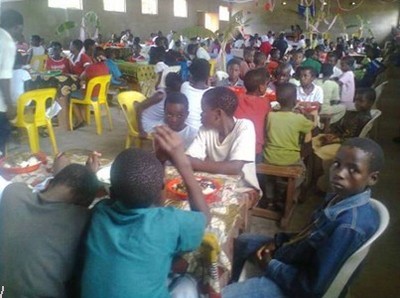Malawi is a long time to deal with severe economic situation
Published on April 24, 2013 at 7:45 AM by FACE OF MALAWI
During the last months of the term of President Bingu wa Mutharika a political and economic mismanagement, centered on the myth of self-sufficiency and tinged with authoritarian temptations, had led to the separation between the international donors and the lack of some essential goods, including gasoline . A year ago, access to the presidency of Joyce Banda had raised high hopes profound and positive changes.
The President Banda has moved in effect in the sense of a progressive political and economic liberalization, and has re-established relations with traditional lenders of Malawi, but to satisfy the international community – whose support covers about 40% of the state budget – also gave the go-measures guided by the severity, as well as a sharp devaluation of the kwacha, the local currency. latter decision triggered a ‘runaway inflation . All that is imported from abroad, such as gasoline, or bread, or rice, has known significant increases.But, consequently, local products, such as corn, have begun to commercializzarsi at prices far higher: the sack of corn from 50 kg, bought a year ago to 3,000 kwacha (about € 6), is now on sale at market for 10,000 kwacha (about 20 euro).
You can imagine the impact of this on family budgets have already been tested on a society still deeply rural.Especially since the price increase was not accompanied with a review of wage trends. That is why, since the beginning of the Civil Servants Trade Union, the union of civil servants, has organized several protest demonstrations, and strikes that paralyzed the country: schools, hospitals, airports were closed for a long time, or have worked in fits and starts. The strikers were demanding a 65% increase in the basic salary, and eventually the government relented, promising an adjustment a little less.
E ‘in this scenario difficult, and in rapid evolution, while increasing the number of poor and the despair of the people, as hopes alimentatesi with the settlement of the first female president of the country seem to result in a profound disappointment that the community of Sant ‘Egidio of Malawi – a widespread presence, which covers the country’s major cities and many villages – have stepped up their commitment to the weaker sections of the population .
Just two examples.
In some areas of Malawi (the south in particular) the effects of the economic crisis have been magnified by heavy rains in January and February. many houses were destroyed – the poorest, built with mud and thatched roof – as well as the harvest of corn, and just at a time, one that runs from Christmas to Easter, which in Malawi is called the “time of hunger,” one in which the stocks of maize are exhausted in waiting for the new crop of April …. Here, in this context, it was necessary to do something. Even within the limits of its possibilities the community of Mangochi has been busy arguing over who had suffered in the surrounding district. At the beginning of March, a large cargo of aid started from Mangochi to the village of Mpinganjira, the most affected.
Not only in the south of Malawi Schools of Peace managed by Sant’Egidio are a point of reference for many children who are looking for friendship and the possibility of a different future.
Mawira is a village in Liwonde, away from the main road that connects the two real cities of Malawi, Lilongwe and Blantyre, and that is a bit ‘the backbone of the country. We are talking about an area near the border with Mozambique, and in the surrounding area there are many Malawians who decide to migrate across the border in search of work. So many children end up living with their mothers and nothing else, or with grandparents, or, completely alone , they become street children.
It was in this village, the Community has chosen to build a spacious and welcoming sign of hope for many children , because they do not find themselves more alone. Every week about 150 children will attend the School of Peace. , but also several elderly seeking shelter in the structure , not to be alone, to enjoy a space that speaks of a different horizon.
This beautiful house of Sant’Egidio is no longer just a place of education, then, or accompanying, but also that ‘”tree” mentioned in the Gospel (Mt 13, 32) where “the birds of the air come and lodge” , a beautiful and friendly place to rediscover the serenity and confidence in the future that you have always needed, but especially in a time of difficulty and crisis .
 |
| The home for the children of Liwonde |
.JPG)


